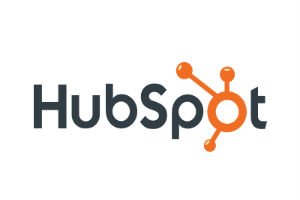When this year draws to a close, there will be several contenders for the top business buzzword of 2018, but artificial intelligence (AI) is a good bet to run away with the title. Under development for decades, AI is already an everyday tool people use in their personal and professional lives — just try to get through a day without Google.
AI is poised to not only support professional activities but transform them. And no area is riper for transformation than sales.
Technological advances and data proliferation are driving innovation in AI, and the new tools aren’t just for larger companies. In fact, smaller companies have a golden opportunity to gain on larger peers by adopting AI tools that improve their competitive position. Industry analyst Gartner predicts that 2018 will be the year AI is democratized — taking on a more prominent role across business functions.
Learn how to run more effective sales meetings using this playbook.
So, how will AI transform sales? AI-powered tools are already improving efficiency by automating mundane tasks like updating the CRM system. They can scrape data from email, phone call transcripts and meeting reports, creating action items and enhancing customer profiles. And the less time salespeople spend on those tasks, the more time they have to sell.
But one of the most exciting transformations AI is driving is the revitalization of a venerable tool: the sales playbook.
If you’re not familiar with the term, a playbook is a series of frameworks sales teams use including tactics, objectives, and metrics for closing deals. Many companies have digitized their playbooks, but aside from residing in pixels instead of print, the traditional playbook hasn’t changed much — until now. Here are five ways to reimagine sales with AI.
How to Jumpstart Your 2019 Sales Playbook with AI
1. Create dynamic playbooks that respond to marketplace changes in real time
AI-powered playbooks turn the old approach on its head in many important ways. Rather than a playbook based on a static view of the marketplace, AI-powered playbooks are dynamic and capable of responding to changes in demand and competition on the fly. Instead of limiting a sales team to one — or even a handful — of playbooks, AI-powered playbooks are limitless and tailored for each opportunity.
2. Use learning playbooks tailored to each opportunity and individual selling style
AI-powered playbooks are customized for each salesperson’s selling style. Every interaction with a prospect is optimized for success using all available data on the customer and the salesperson. Since the playbook is designed to fit the opportunity and the sales professional, it increases productivity and becomes smarter over time by learning from success and failure.
3. Embrace affordable playbooks that turn average salespeople into rockstars
Entrepreneurs who are building an organization sometimes put off deploying advanced technology tools like AI, thinking they lack the data, budget, and personnel to implement it successfully.
That’s a mistake. AI can unlock the power of underused CRM data, and it generates its own information. AI-powered sales tools can help startups build a sales organization where everyone performs at the rockstar level.
4. Enjoy unprecedented insight into opportunities
AI detects the reasons behind opportunities, comprehending patterns invisible to others. It can parse data to discover where prospects are in the buying cycle, predict when equipment will need to be replaced, and discover new marketplace factors that can make or break a sale. With an AI-powered playbook, the sales professional receives a blueprint for success.
5. Reap lasting dividends for early adopters
Contrary to popular belief, using advanced AI technology doesn’t require an on-staff data scientist or detailed technical knowledge on the part of the sales team. Thanks to the computing evolution, the cost of AI adoption is significantly lower than the expenses associated with other technology tools.
And a head start with AI continues to pay dividends, making early adoption a gift that keeps on giving.
AI-driven predictive technologies are already making a difference, with some early adopters seeing a performance improvement of up to 100% for salespeople who used to post average numbers. Above-average salespeople are seeing up to a 20% increase, just by following the strategic recommendations their dynamic sales playbook provides.
That’s a huge breakthrough, and the good news is, companies adopting AI-driven sales tools don’t just benefit in the short term. They’re building strong, productive teams and a winning culture allowing them to leave competitors in the dust. That’s a lasting advantage that can help these companies succeed well into the future.
The use of dynamic rather than static data provides an edge because it allows salespeople to respond to changing market conditions agilely, and it allows the AI-driven sales tool to get smarter as it takes in more data.
So, companies evaluating AI sales tools should look for dynamic capabilities. It’s also a good idea to find a solution that provides strategic recommendations, not just insights.
The future of sales is AI-driven, and the first set of AI-powered sales tools is already available. Smaller companies, which are nimbler than larger peers, have an opportunity to lead the way.
AI isn’t just rebooting sales processes — it’s reimagining the sales function itself, and the companies that get in on the ground floor will build a formidable advantage over larger competitors.
























